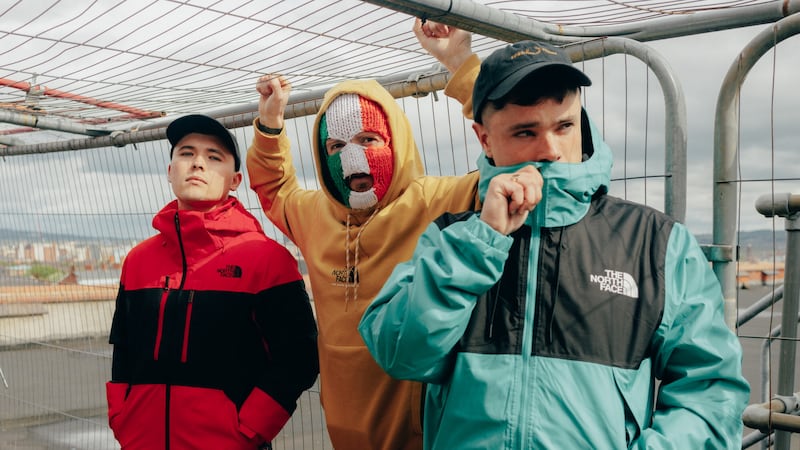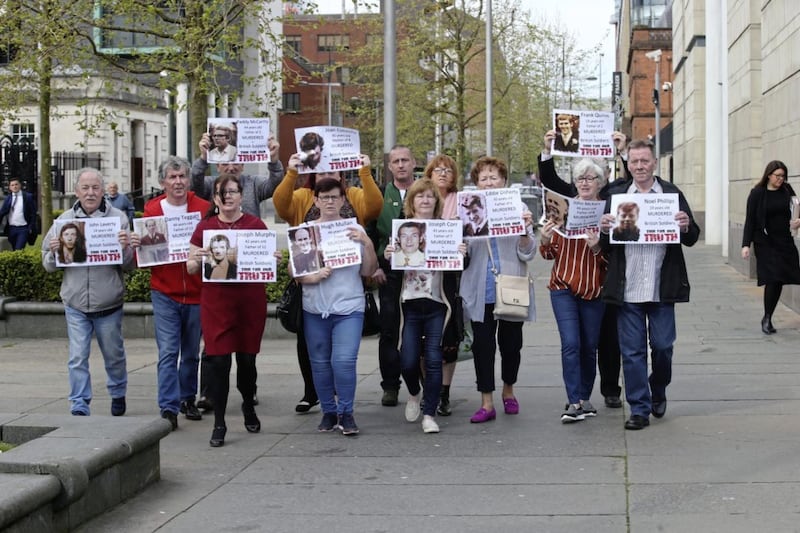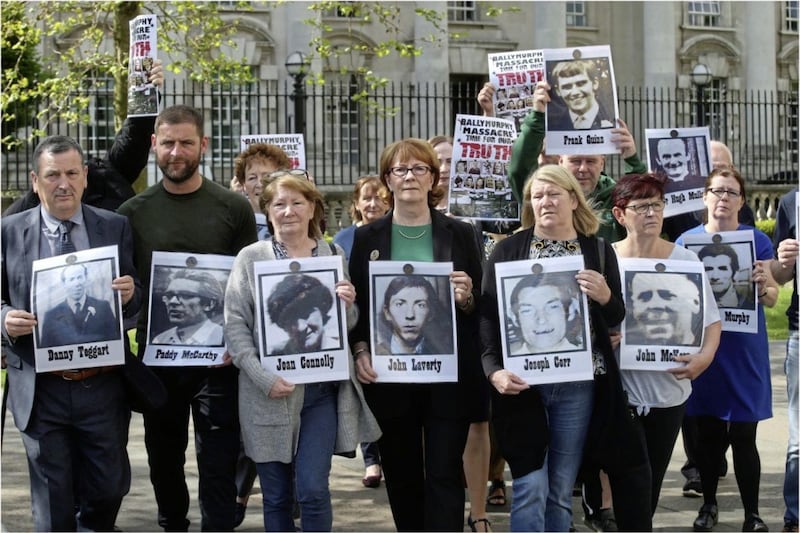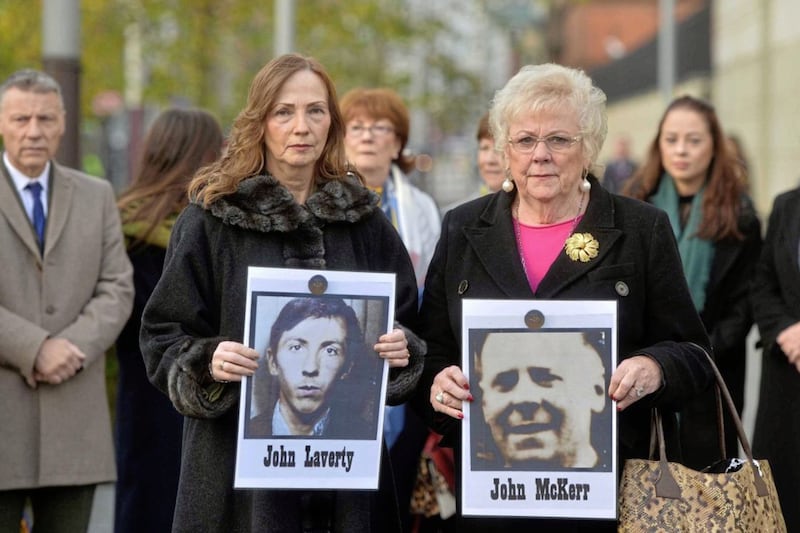MILITARY officials briefed the media in 1971 that a father-of-eight gunned down by soldiers in west Belfast “had a gun in his right hand”, despite him having lost that hand “while serving in the British army during the Second World War”.
Anne Ferguson wept as she told the inquest into John McKerr – one of 10 people killed in Ballymurphy over three days – her family need to “set the record straight” about his death.
“It would have been important for our daddy to have the misreporting corrected,” she told coroner Mrs Justice Keegan.
“My father had been a soldier in the British army in the Royal Engineers.
“He was proud of his military career and was a member of the British Legion. He would not have wished to be associated with any paramilitary or terrorist organisation.”
One of his sons served in the Royal Navy.
The family discovered Mr McKerr (49) was critically injured after his daughter Maureen read it in The Irish News as she waited for a lift to work: ‘A Willie John McKerr had been shot and wounded in the Whiterock Road area the day before’.
“Mo showed her [mother] the newspaper and she says she can remember Mum’s screams to this day,” Mrs Ferguson said.
Among the “misreporting” which distressed the family were claims Mr McKerr had been attending an ‘IRA’ funeral.
“In fact he had been working at the church and was asked to stop work while the funeral took place of a young lad who had drowned while fishing. It was as he was leaving the church that he was shot.
“It was also reported that he’d had a gun in his right hand. He didn’t have a right hand. He’d lost his right hand while serving in the British army during the Second World War.
“Since then he had to wear a steel prosthesis over his stump which enabled him to attach his tools – mostly a small steel hammer.”
Mr McKerr died in the hospital a week after the shooting.
His youngest child Bernadette (11) tried to visit him before he died but was “advised by a nurse not to go to see him but to remember him as he had been”.
Mrs Ferguson said “before the funeral, a general or a major from the British army came and apologised to our mother for what happened”.
Meanwhile, Carmel Quinn told the coroner her brother John Laverty “is not just another statistic of the conflict”.
“He was a son, a brother, an uncle. He was deeply loved,” she said.
Mr Laverty, who was just 20 when he was “shot in the back” on August 11 1971, was “called after his uncle John who fought in the Second World War”.
“A kind, loving child who grew up to be a 6-foot-tall laid-back, easy going lad,” he worked for the Belfast Corporation and “to the outside world... was a quiet big fella but in the comfort of our home he was a prankster”.
“John always tried to look after us. He helped our sister Tilly, who had two daughters at the time. He would mind them on a Friday night to make sure Tilly and her husband Edmund could get a night out.”
Their mother Mary McKerr refused to leave her husband and sons when women and children were being evacuated from Ballymurphy ahead of internment, so her 24-year-old daughter Sue went instead with Mrs Quinn and her sister Rita.
“John helped us over to our local community centre, carrying our bags for us.
“I began to cry because I didn’t want to go. I didn’t want to leave my mummy and my family. I remember having a real sense of fear.
“John told me that it would be all right, I was only going on a holiday and when we come home everything would be OK again.
“We got on the bus and left. Our John stood waving to us until we couldn’t see him any more.
“Unknown to us, this would be the last time we would see our beautiful brother.”
When John and his brother Terry went missing, it was 36 hours before their parents found out one was dead and the other “arrested and tortured by soldiers and RMPs”.
“One soldier said to [Terry]: ‘I have already shot one Irish b*****d dead, another won’t matter.’ Terry, at this stage did not know he was talking about our John,” Mrs Quinn said.
“Our John was not a gunman.”
Terry Laverty was bailed but had to report daily to police, “even on the very day we were burying our brother... we couldn’t even bury our brother in peace”.
His parents “functioned, but their hearts were too sore to find any joy in life again”, Mary visiting the graveyard every day to “sit talking to him and crying for him”.
Youngest brother Martin (15), now alone in “the boys room... cried himself to sleep most nights”.
“Family life as we knew it changed. An emptiness came over our home.”








